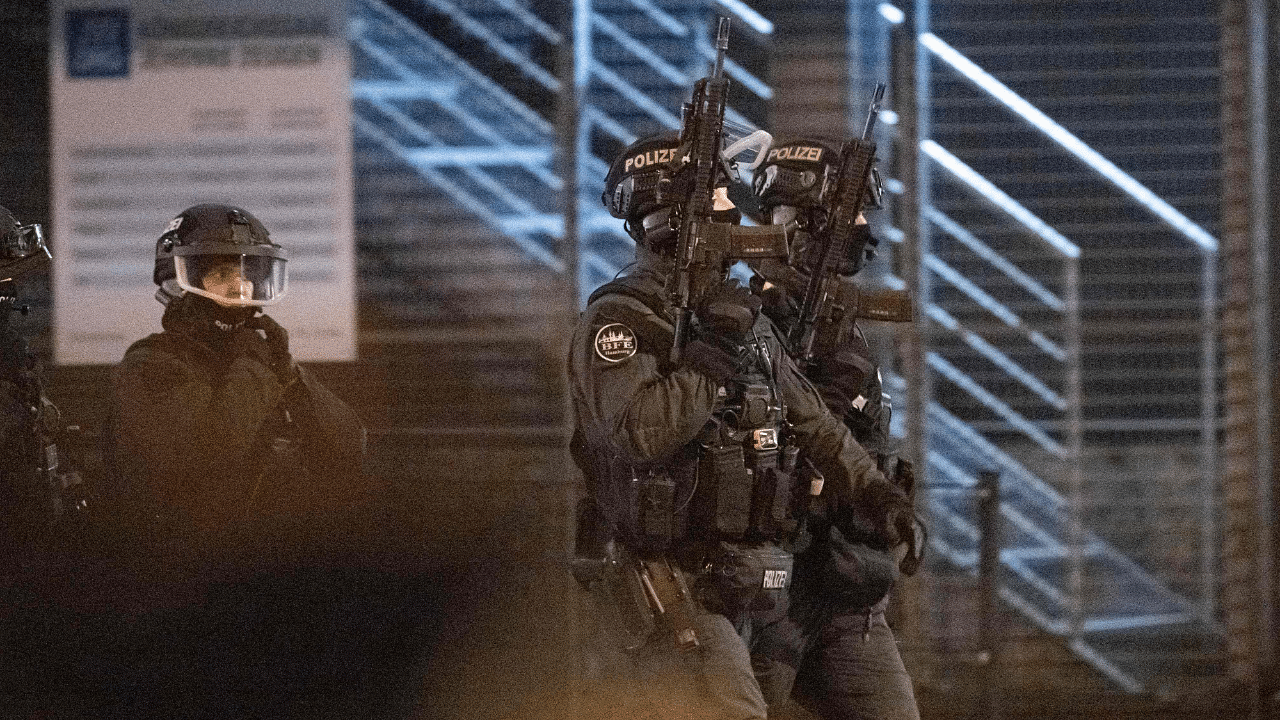
Eight people were killed in a shooting at a Jehovah's Witnesses hall in Hamburg, German police said Friday, and an unspecified number of others were wounded.
Police gave the figure on their website. There was still no word on a possible motive for the shooting on Thursday evening that stunned Germany's second-biggest city.
German Chancellor Olaf Scholz, a former Hamburg mayor, described the shooting as “a brutal act of violence.”
Police said during the night that they believe that there was only one shooter, and that this could be a person who was found dead in the building.
The first emergency calls were made around 2015 GMT after shots rang out at the building in northern Hamburg, a police spokesman at the scene said.
"Several people were seriously injured, some even fatally," police said on Twitter.
"At the moment there is no reliable information on the motive of the crime," they added, urging people not to speculate.
Police sounded the alarm for "extreme danger" in the area using a catastrophe warning app.
Residents must stay indoors and avoid the area, police said, adding that streets surrounding the building had been cordoned off.
The first police at the scene found several lifeless bodies and seriously wounded people.
They also heard a shot in the "upper part of the building" before finding a body in the area where it rang out.
"We have no indications of a perpetrator on the run," said the police spokesman.
Instead, officers have "indications that a perpetrator may have been in the building and may be even among the dead."
The spokesman added that the person uncovered in the upper part of the building was "possibly" the perpetrator.
In the non-descript, three-storey building, police said an event had been taking place on Thursday evening.
Local daily Hamburger Abendblatt reported that 17 unhurt people, who had been at the event, were being attended to by the fire brigade.
Some 1,75,000 people in Germany, including 3,800 in Hamburg, are Jehovah's Witnesses, a US Christian movement set up in the late 19th century that preaches non-violence and is known for door-to-door evangelism.
The port city's mayor, Peter Tschentscher, expressed shock at the shooting on Twitter.
Sending his sympathies to the victims' families, he said emergency services were doing their utmost to clarify the situation.
Germany has been rocked by several attacks in recent years, both by jihadists and far-right extremists.
Among the deadliest committed by Islamist extremists was a truck rampage at a Berlin Christmas market in December 2016 that killed 12 people.
The Tunisian attacker, a failed asylum seeker, was a supporter of the Islamic State jihadist group.
Europe's most populous nation remains a target for jihadist groups in particular because of its participation in the anti-Islamic State coalition in Iraq and Syria.
Between 2013 and 2021, the number of Islamists considered dangerous in the country had multiplied by five to 615, according to interior ministry data.
But Germany has also been hit by several far-right assaults in recent years, sparking accusations that the government was not doing enough to stamp out neo-Nazi violence.
In February 2020, a far-right extremist shot dead 10 people and wounded five others in the central German city of Hanau.
And in 2019, two people were killed after a neo-Nazi tried to storm a synagogue in Halle on the Jewish holiday of Yom Kippur.